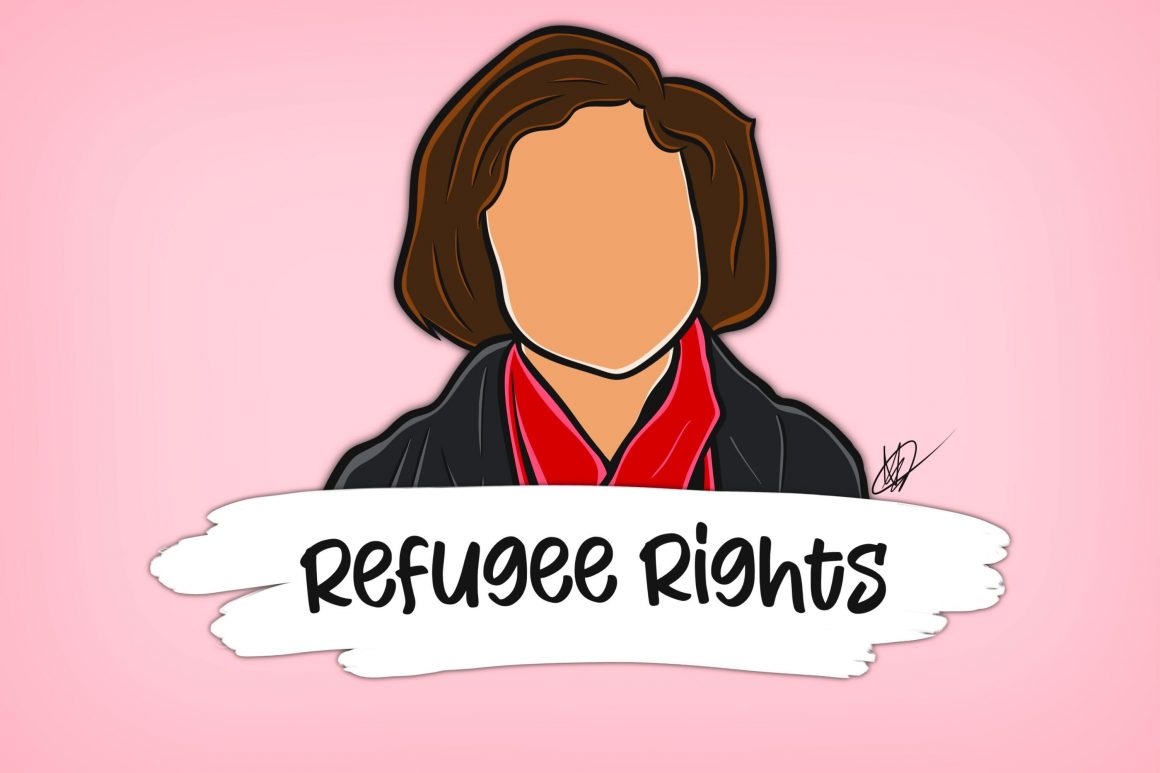
Raising Awareness for Refugee Rights panel shares their lived experiences in Canada
By Nazeefa Ahmed, April 17 2022—
On April 4, the Faculty of Arts’ Equity, Diversity, and Inclusion Committee (EDIC) hosted a webinar for Refugee Rights Day to recognize the struggles that refugees face when fleeing areas of political strife, environmental disaster and oppression. Panelists included refugees Souzan Korsha, Laila Abdul Rahim and Younis Nassif, Calgary community members Bindu Narula and Saima Jamal and University of Calgary hosts Leah Hamilton, Juanita Lopez and Pallavi Banerjee.
The University of Calgary’s Equity, Diversity and Inclusion Committee (EDIC), “Promote[s] an inclusive institutional climate that reflects, respects and celebrates diversity,” according to their website. They also raise awareness of discrimination and provide support to students to combat unconscious bias on campus.
Refugee panelists spoke about their struggle to be valued as human beings that can offer their skills to the communities they resettle to.
Korsha, an Afghan refugee who settled in Canada in 2016, describes the refugee perspective.
“We were once students. We were once teachers. We were once lawyers and doctors. We once had a life to live for. But we were forced to leave everything behind and look for a safer place to live,” she said. “A big misconception is that we are a burden to the host country’s economy, which is simply not true. We just need some time to adjust, to learn the language and to find a job, and then we can contribute.”
Narula, a panelist who has employed many refugees speaks on behalf of their hard working nature.
“These people have been through so much that they are so grateful for the opportunities present. If people do not want to hire them, it is their loss. I have only ever benefited from hiring refugees.”
Nassif, a Syrian refugee, worked as a lawyer for 20 years in Syria before fleeing to Canada. He spoke about the difficulty of working in Canada with the credentials of one’s home country because much of their education is not easily transferable, requiring many years of re-education to practice.
There was also discrimination present in the workplace, as Nassif described the discrimination him and his family faced.
“My wife tried to work as a teacher because she has a kindergarten degree and worked in Syria. When we left, she worked as a teacher in Jordan for 15 days until someone complained that she can not be a teacher because she is a refugee,” said Nassif.
In 2019, Canada welcomed 19,143 privately-funded refugees. However, many of them were only promised entry, and were left to support themselves when they arrived.
Narula, director of Resettlement and Integration Services in the Calgary Catholic Immigration Society (CCIS) speaks of this issue.
“Many refugees come to Canada with only three months worth of living expenses in their pocket. They do not have anyone to rely on, which is why they need some financial support at least in their first year to allow them to be integrated,” Narula said.
Jamal, a former Tedx speaker and cofounder of the Calgary Immigrant Support society works daily with refugees entering Calgary to make the city a place they can call home.
Jamal explains how perspective is important.
“Humanitarian lens should always be the first and foremost as these people come to Canada with a huge burden of trauma,” said Jamal. “They are fleeing war but when they come here we need to understand that this is not a black and white issue. It’s a spectrum. We need to leverage their skills, their talents, and their contributions.”
As the program manager of non-profit Jumpstart Refugee Talent, Jamal supports refugees through meaningful economic inclusion that allows refugees to explore job and entrepreneurial opportunities. The company helps remove the systematic barriers that refugees face so they can work and support themselves and their families.
Jamal spoke of how refugees come to Canada with little to their name and that maximum support is required by Canadian citizens so that they can resettle. However, part of them can never really call Canada home. Abdul Rahim, a recently settled Palestinian refugee, speaks of the loss.
“After the Iraqi invasion of Kuwait, we were forced to leave, even though this is a place where we spent 36 years [of our life]. We [had] no other place to go because we are stateless. We don’t have Palestinian passports. We don’t have an ID. We don’t have any documents to travel,” she said. “When we move from place to place without our control, we leave a piece of our soul in the places we leave. Memories. Faces. Letters. And all of that affected us deep in our hearts.”
To learn more about the U of C’s EDIC events and work at the university, visit their website.
